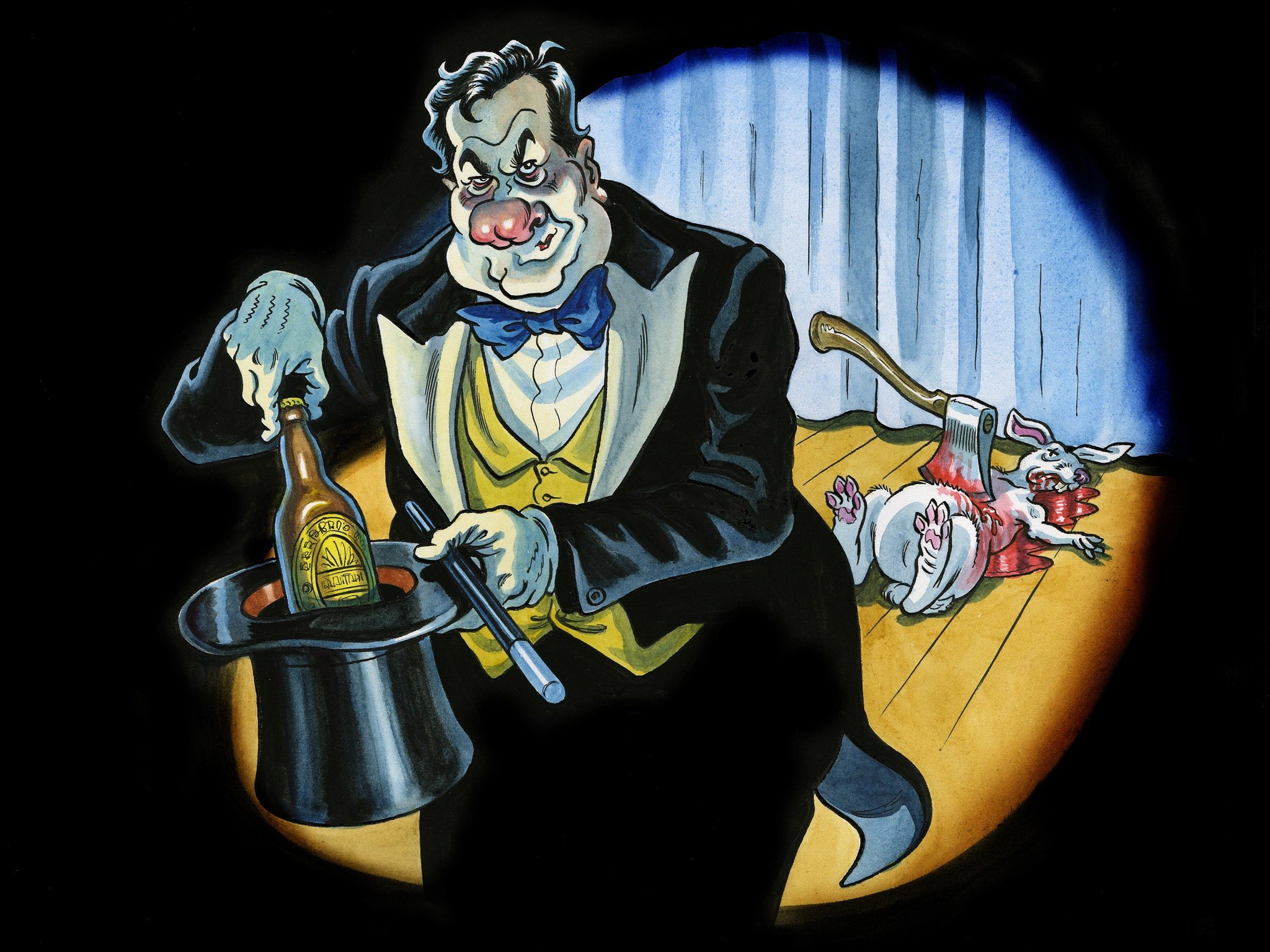In this year's Budget, George Osborne showed he's committed to the illusions of a Torytopia
It used to be said that the best Chancellors are like snake oil salesman. Alas for this one, he's not too good at selling things. But will it cost him or his party?

In a pertinent rewrite of Abraham Lincoln’s political maxim, the American writer James Thurber advised, sadly, that you can now fool too many of the people too much of the time.
This is the subjective principle that defines the confident trickster: overestimating that you have the ability to weave tangled webs of deceit – and that whatever version of reality is presented, it will be swallowed.
Such hubristic DNA ran through page after page of the chancellor’s budget speech. “I will be straight with the country” he said. His contempt continued with “Today I’m going to level with people about the difficult decisions we face.”
No salesman
It has been said of past chancellors that the skills of a snake oil salesman, rather than the dexterity of an econometrician, are required to deliver a Budget that is greeted with applause.
Osborne however is no salesman. Despite the insistence that his economic medicine was working “slowly, but surely” and Britain’s economic woes were being fixed , his shrill haughtiness and arrogant dismissal of economic reality, points to a worrying superiority complex that at its core is dismissive of the electorate’s right to be told, in full, what is happening out there.
The last budget and pre-budget pronouncements of Alistair Darling in Gordon Brown’s ailing administration suffered from similar democratic deficiencies. In December 2009, Darling said his PBR was being delivered from “a position of strength”. The comment wasn’t misplaced humour, it was sheer political fear.
Osborne, then seated on the Opposition front bench, will have recognised that Darling was presenting a Photoshopped, air-brushed version of UK PLC, which was already in intensive care and awaiting something more than Darling’s fabrication that Labour’s policies had “made a real difference.”
The creation of the Office of Budget Responsibility in 2010 was intended, as one Treasury economist told me at the time, “to cut down on the Utopian crap” and provide an “independent and authoritative” analysis of the UK’s public finances. However official forecasts from the fiscal watchdog are, as all evaluations are, subject to change. Simply put - they can be, and have been, plain wrong.
Four months ago growth of 1.2 percent was being predicted. The forecast is now 0.6. When it was first set up, the OBR predicted growth of 2.8 percent for this year. That’s beyond a D-minus error, over 400 percent wrong.
Yet Osborne, just like Darling, remains wedded to budgetary illusion and deception as though his office regards it as mandatory. The promised timetable for a fall in the UK national debt? Out by two years and won’t now happen till 2017/18.
In Osborne’s Torytopia, those critical of his soaring achievements are those not “working hard to get on.” The economic slight-of-hand is insolent and damning of a category of UK society that doesn’t exist – namely, those who don’t want Britain to be a better place to live in.
Though the OBR are on record as saying that living standards would fall during Osborne’s likely five-year reign at the Treasury, there was neither an acknowledgement or contrition for this harsh reality in the budget.
Labour's error
If Osborne ducks reality and wants to play this shadow game of promised jam tomorrow, what was his budget for? If it was about the chancellor pleading to be trusted, it failed. Growth has been choked off. Forecasts for decent weather ahead come with wafer-thin margins of error. Debt levels remain critical, with blame – as in Darling’s final days – an alien concept that resides everywhere but 11 Downing Street.
Nevertheless Osborne told the electorate that his battle to restore growth, reduce debt and deliver prosperity was on course.
Labour’s major mistake, among many, at the last general election was to avoid spelling out in detail what the economic crisis would mean in terms of imminent pain. Brown and Darling behaved as though it was none of the electorate’s business.
This allowed the Conservatives use of an economic high ground that had a built-in right to a parallel silence, which ended only after Osborne was safely at the helm of the Treasury and the volumes of John Keynes’ theories could be quickly ditched in the basement archives.
Even if the volume of Osborne’s communication was never that high, the government’s economic silence on what is out there is back again. Our democratic right to know? Forecasts that stretch beyond the next election, means that even the prospect of rows of ballot boxes, might not result in being told too much.
Which is why Osborne, and perhaps future chancellors, will continue to smile unless something changes.

Join our commenting forum
Join thought-provoking conversations, follow other Independent readers and see their replies